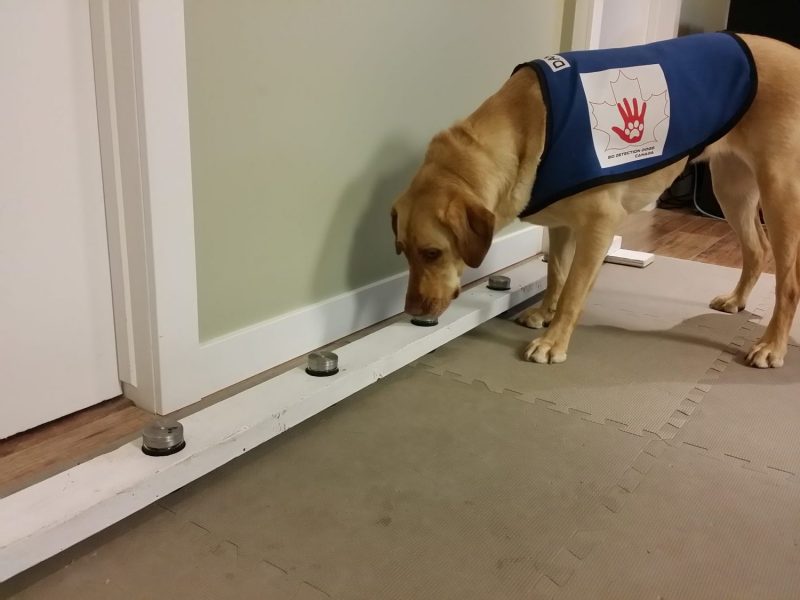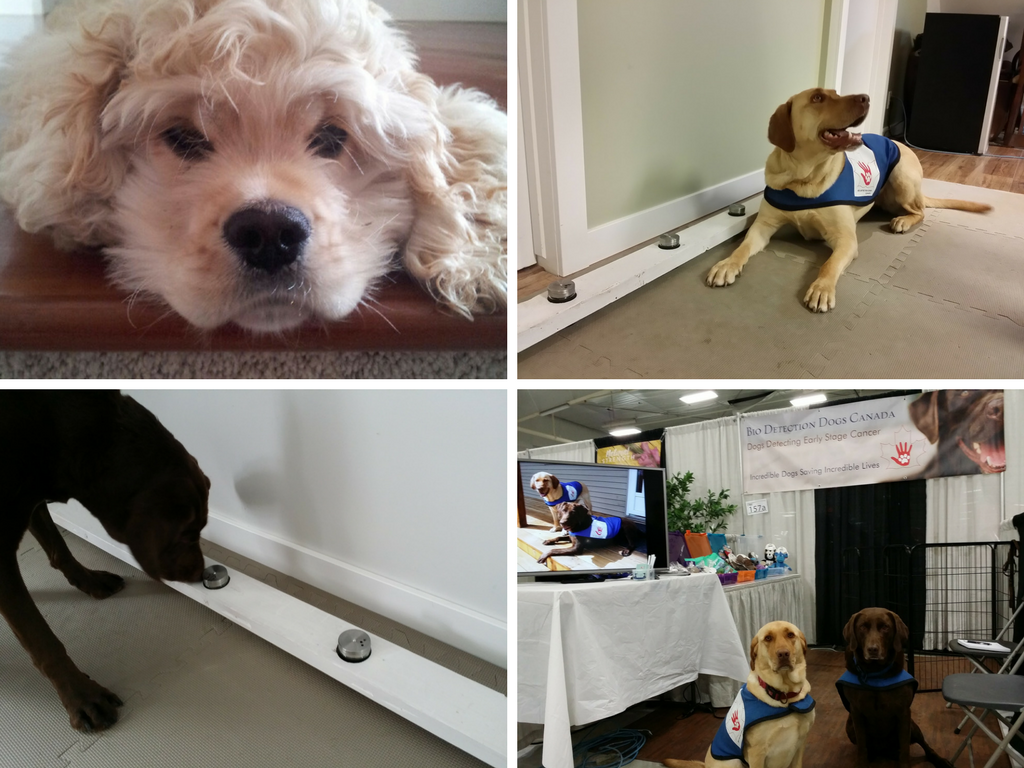
Currently, pet owners have limited options when it comes to cancer screenings for their furry companions. All too often, we find out too late that our pets are sick. Liz Dick, head trainer with Bio Detection Dogs Canada, is hoping to change that. We sat down with her to discuss her latest ongoing project – training dogs to detect cancer in other animals.
Q:. Tell us about the program you participated in last February in regards to dog training?
A: I took this course last February in California – the only one of its kind actually – that trains trainers how to train dogs in order to detect cancer in humans. So this is where I’m working to change the protocol a little bit so the dogs can detect cancer in animals.
Q: So your hopes are that Bio Detection Dogs Canada will eventually be able to provide affordable and effective cancer screening for animals?
A: With a pet owner, cost is always a factor. And you have to consider if your animal’s life will be extended in a good way. Hopefully with early cancer detection, it will give the pet owners more options and maybe even reverse the diagnosis of cancer.

Q: Do you anticipate that similar screenings performed on animals will have the same results as case studies involving human participants?
A: Dogs right now, for detecting cancer in humans, in current case studies, are able to do it at 95% accuracy. I need my dogs to be able to do it with at least 85% accuracy, and there’s no reason in the world why they can’t (eventually).
Q: What breed of dog works best for cancer screening and why?
A: As far as the dog is concerned, it doesn’t matter what breed it is. It doesn’t matter what type of dog it is, they have a profoundly intricate sense of smell. But, dogs that have a compressed snout are not as likely to discover a specific scent than a dog that has a fully extended nose.
Want to stay up to date with Liz Dick and her work with Bio Detection Dogs Canada? Reach out to our Panel of Experts today!
The content on this website is for informational purposes only and is not intended to be a substitute for professional veterinary medical advice, diagnosis or treatment.